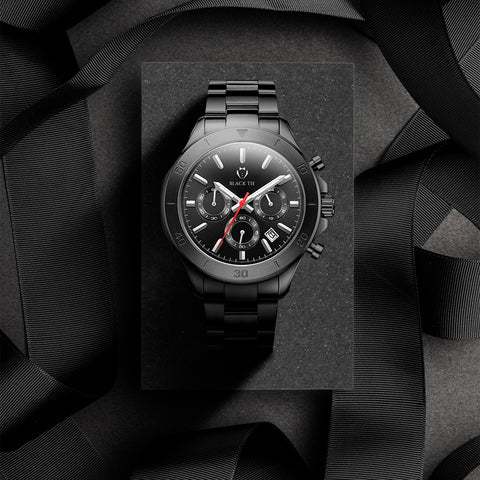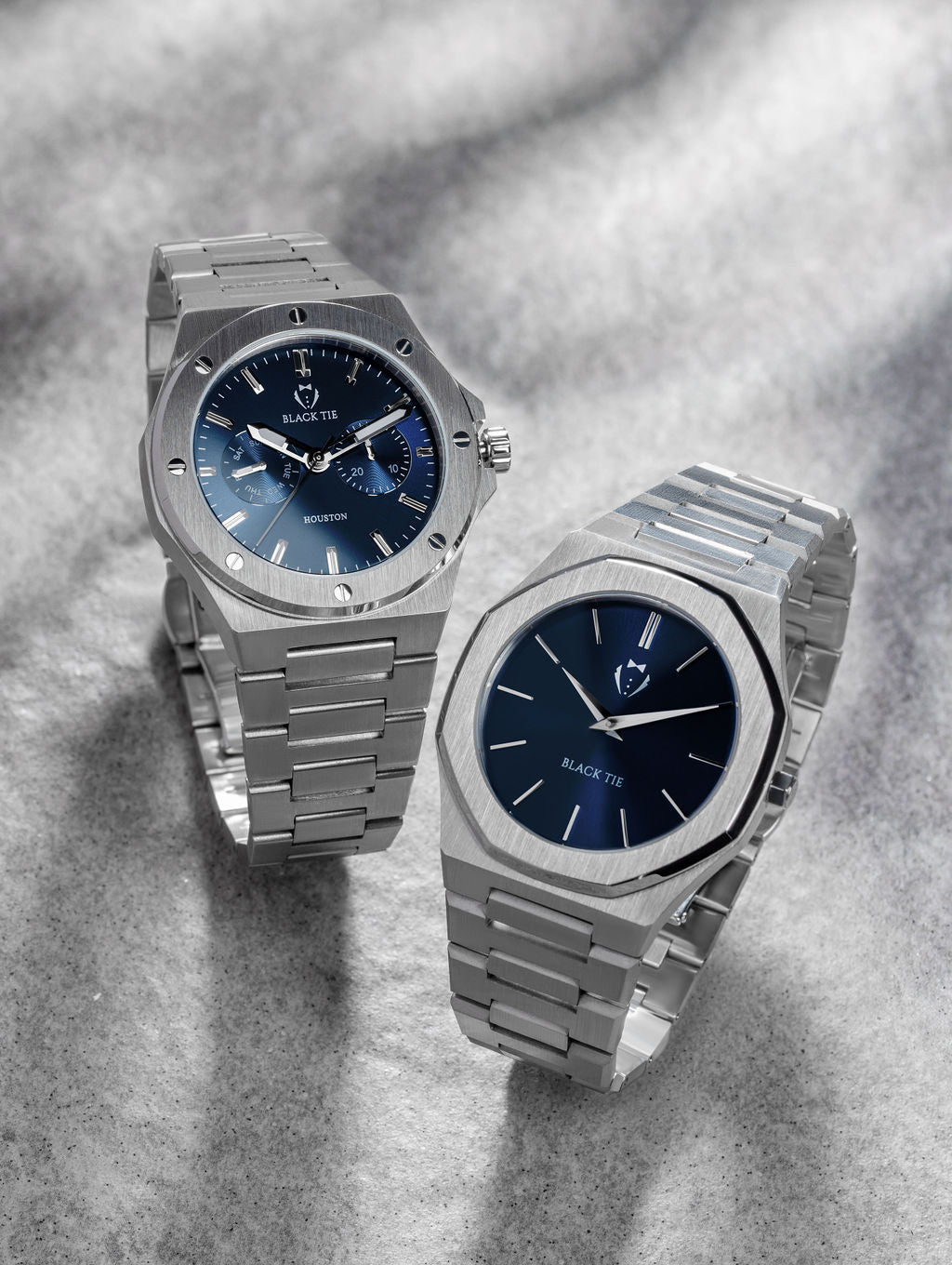Watches have been around for centuries and have evolved from simple timekeeping devices to complex and innovative pieces of technology. If you're new to the world of watches, it can be overwhelming to navigate the various terminology and functions associated with them. In this beginner's guide, we'll break down the most important watch terminology and functions you need to know.
Terminology
Movement: The mechanism inside a watch that powers it. There are three main types of watch movements: quartz, mechanical, and automatic.
Quartz Movement: A type of watch movement that uses a battery to power a quartz crystal, which vibrates at a precise frequency to keep time.
Mechanical Movement: A type of watch movement that uses a spring to power the watch. It requires manual winding and is typically found in more traditional and vintage-style watches.
Automatic Movement: A type of watch movement that uses the motion of the wearer's wrist to power the watch. It does not require manual winding but will stop if not worn for an extended period.
Complication: A feature on a watch beyond the basic timekeeping function. Examples of complications include date display, moon phase display, and chronograph functions.
Chronograph: A type of complication that allows a watch to measure elapsed time. It typically has multiple sub-dials on the watch face and can be started, stopped, and reset.
Bezel: The ring surrounding the watch face that rotates. It can be used to track elapsed time, measure speed, or as a visual element of the watch design.
Crown: The knob on the side of the watch used to set the time and date. It can also be used to wind a mechanical watch.
Functions
Time: The primary function of any watch is to tell time. This is typically displayed on the watch face with hour, minute, and second hands.
Date: Many watches also have a date display, either in a small window on the watch face or as a separate sub-dial.
Water Resistance: A watch's ability to withstand water. Watches are typically rated in meters, with 30 meters being suitable for light splashes and rain, while 100 meters or more is suitable for swimming and diving.
Luminosity: The ability of a watch to glow in the dark. Watches may have luminous markers, hands, or entire watch faces.
Power Reserve: The amount of time a watch can run on a single charge or winding. This is typically measured in hours.
Accuracy: The degree to which a watch keeps time. Quartz watches are typically more accurate than mechanical watches, but high-end mechanical watches can be incredibly precise.
When it comes to choosing a watch, there are many factors to consider beyond just the terminology and functions. First and foremost, you'll want to think about your personal style and preferences. Do you prefer a classic, traditional look or something modern and sleek? Do you prefer a leather or metal strap?
You'll also want to consider your lifestyle and intended use for the watch. If you're looking for a watch to wear to work or formal events, you may want to opt for a more classic and refined design. If you're an outdoor enthusiast or looking for a watch for sports and fitness, you'll want to prioritize features like water resistance, durability, and accuracy.
In addition to the watch itself, you'll also want to think about the brand and its reputation. Some watch brands are known for their luxury and prestige, while others are more affordable and accessible. Do your research and read reviews from other watch enthusiasts to get a better sense of which brands and models are best for you.
Another important factor to consider is budget. Watches can range from a few dollars to hundreds of thousands of dollars, so it's important to set a budget that works for you. Keep in mind that higher price tags don't always equate to better quality or functionality, so be sure to consider all factors before making a purchase.
Once you've found a watch that fits your style, lifestyle, and budget, it's important to take care of it to ensure its longevity and functionality. This means following any care and maintenance instructions provided by the manufacturer, such as keeping it away from extreme temperatures or water exposure, winding it regularly if it's a mechanical watch, and having it serviced by a professional watchmaker periodically.
While understanding watch terminology and functions is important, it's just one piece of the puzzle when it comes to choosing the right watch for you. By considering your personal style, lifestyle, budget, and brand reputation, you'll be able to find a watch that you'll enjoy wearing and that will serve you well for years to come. And remember, no matter what watch you choose, wear it with pride and enjoy the timeless beauty and functionality that watches have to offer.







Leave a comment
This site is protected by hCaptcha and the hCaptcha Privacy Policy and Terms of Service apply.